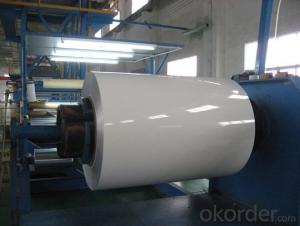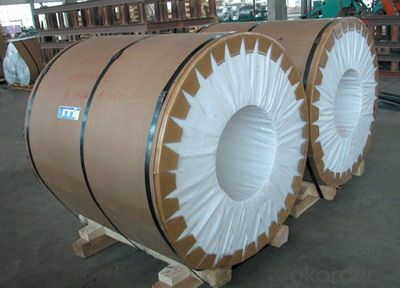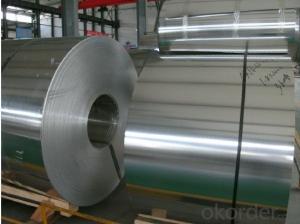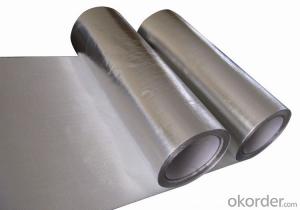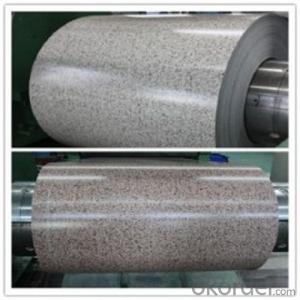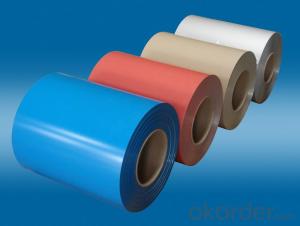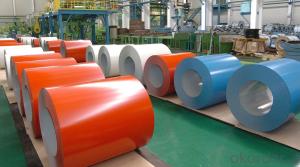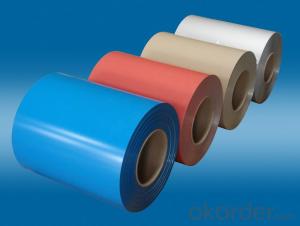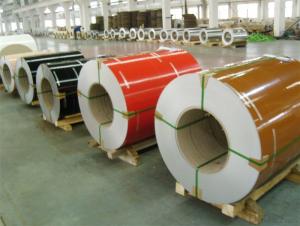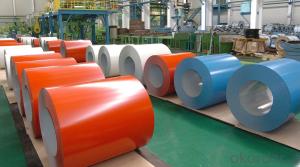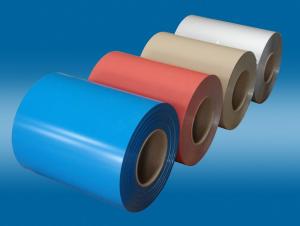Black Aluminum Coil Stock AA1060 Prepainted Aluminum Coils Used for Construction
- Loading Port:
- Shanghai
- Payment Terms:
- TT OR LC
- Min Order Qty:
- 5 m.t.
- Supply Capability:
- 10000 m.t./month
OKorder Service Pledge
OKorder Financial Service
You Might Also Like
Specification
1.Structure of AA1060 Prepainted Aluminium Coils Used for Construction Description
AA1060 Prepainted Aluminium Coils Used for Construction are of a wide range of colors, which give wonderful appearance no matter in residential and commercial constructions or great exhibition centers.
AA1060 Prepainted Aluminium Coils Used for Construction have been widely used in the fields of construction and decoration, electronic applications, lighting decoration, air-condition air pipes, sandwich panels and drainages etc.
2.Main Features of AA1060 Prepainted Aluminium Coils Used for Construction
• Superior quality of raw material
• Reasonable and stable chemical composition
• Accurate tolerance
• Goode mechanical property
3.AA1060 Prepainted Aluminium Coils Used for Construction Images
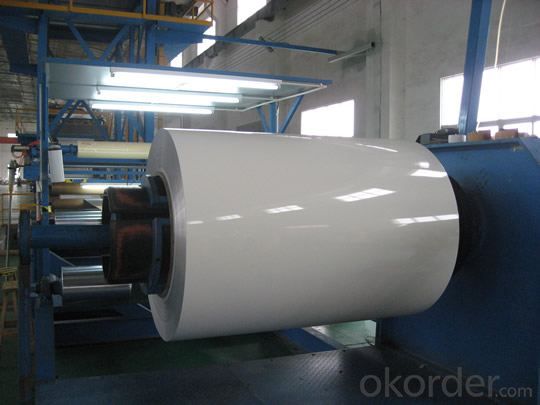
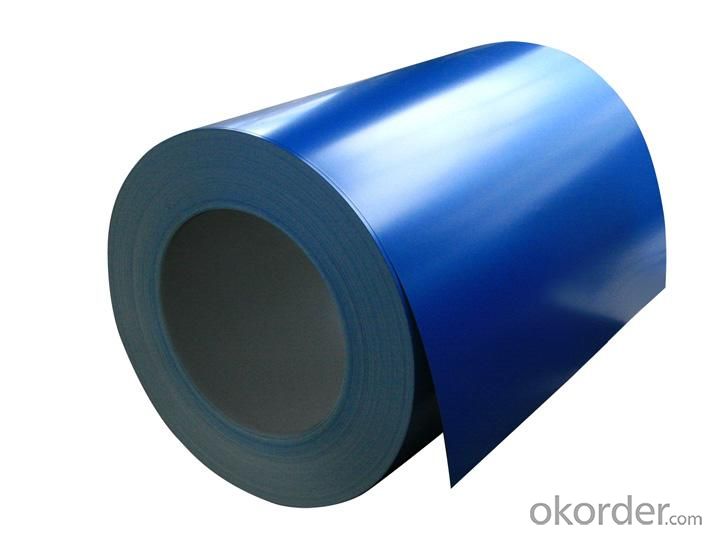
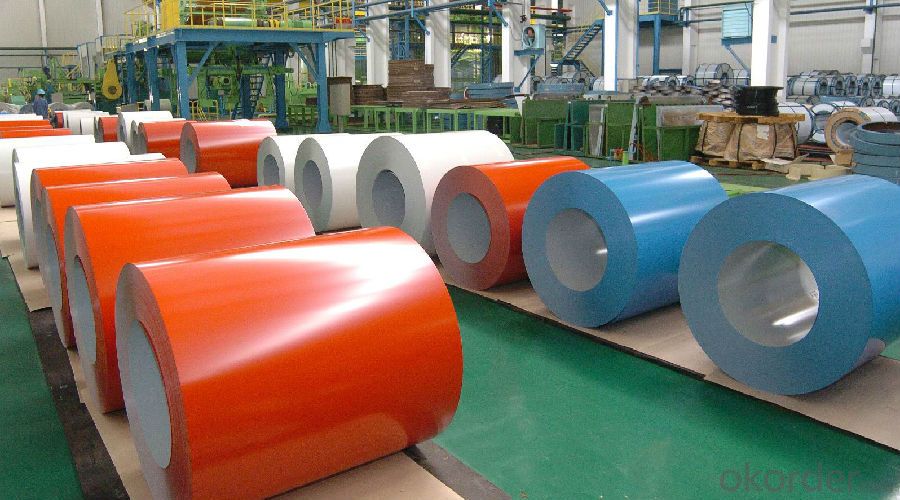
4.AA1060 Prepainted Aluminium Coils Used for Construction Specification
Alloy | AA1060 |
Temper | H14,H16,H18,H22,H24,H26,H32,O/F |
Thickness | 0.03mm-3.0mm |
Width | 30mm-1700mm |
Coating | PE,PVDF,Epoxy |
Painting Thickness | Standard 16-25 Mic, max 40 Mic |
Color | According to RAL colors or customers' samples |
Standard | GB/T 17748-1999 |
5.FAQ:
What is the quality standard?
---Usually our standard is GB3880-2006
What is the largest width?
---It is 2000mm
What is the MOQ?
---Usually we can accept 80 tons.
- Q: What is the electrical conductivity of aluminum coils?
- Aluminum coils have a relatively high electrical conductivity. Renowned for its impressive conductivity, aluminum boasts a rating of approximately 37.7 x 10^6 siemens per meter (S/m). As a result, aluminum is an exceptional option for a range of electrical uses, particularly in coil production. The exceptional conductivity of aluminum facilitates the efficient transmission of electric current through the coils, rendering them a fitting choice for electrical wiring, transformers, motors, and other electrical apparatus.
- Q: What unique considerations or precautions need to be taken when handling aluminum coils?
- <p>When handling aluminum coils, there are several special requirements to consider. First, it's crucial to handle the coils carefully to avoid denting or scratching the surface, which can affect their quality and value. Secondly, due to aluminum's lightweight and high strength, specialized equipment like slitters and rewinders may be necessary to process the coils. Additionally, it's important to store aluminum coils in a dry environment to prevent corrosion. Proper ventilation is also required to avoid condensation, which can lead to oxidation. Finally, safety measures such as wearing protective gear and following material handling guidelines are essential to prevent accidents and injuries.</p>
- Q: I am shopping for new Rollerblades and see their newer skates have Aluminum framesand not the composite which I feel is more sturdier. What do you think of the aluminumframes? I was not impressed.
- Technically okorder /... that were extremely good but the deal probably fell apart when the original Mogema was dissolved.
- Q: How to identify the quality of color coated aluminum coil and sheet?
- Color coated aluminum coil is a kind of aluminum coil. As for qualified color coated aluminum coil, the surface has no impression, holiday and damage through the coating, and also no ripple, scratch and swell. All these are easy to see. However, the most important is the color difference of the color coated aluminum coil which is not obvious but will influence the decoration effect. Now the surface of curtain wall aluminum sheet will also be treated with electrostatic spraying. The power coating materials can have dozens of colors and realize good decorative effect, with polyurethane, polyethylene expansion resin and epoxy resin as raw materials, high color retention pigment as auxiliaries.
- Q: Are aluminum coils suitable for use in the automotive industry and what are their applications?
- <p>Yes, aluminum coils are widely used in the automotive industry due to their lightweight, high strength, and corrosion resistance. They are utilized in various applications including vehicle body panels, engine components, heat exchangers, and electrical wiring. Aluminum's recyclability and energy efficiency also contribute to its popularity in automotive manufacturing, helping to reduce vehicle weight and improve fuel efficiency while adhering to environmental standards.</p>
- Q: I am looking for a good comparison between carbon fiber and aluminum, we presently use aluminum in a lot of our manufacturing and may want to use cf. Does anyone have a simple breakdown of rough cost difference, weight savings, sheet thickness for a certain strength, that kind of thing, kind of struck-out looking on google unless I wanted a bike...Thanks in advance.
- I would like to add to Steel Head's statement that fiber abrasion can also have very negative effects. When aluminum abrades it becomes a lubricant.
- Q: Is it safe and effective to use aluminum coil for baking purposes?
- <p>Yes, aluminum coil can be used for baking. It is a common material in baking due to its excellent heat conductivity, which allows for even heating and browning of baked goods. However, it's important to ensure that the aluminum coil is food-grade and clean to avoid any contamination. Additionally, some people may be concerned about potential health risks associated with aluminum, although these concerns are generally considered minimal when using aluminum cookware for baking.</p>
- Q: What are the potential challenges in recycling aluminum coils?
- Recycling aluminum coils presents several potential challenges that need to be addressed. To begin with, the removal of contaminants such as paint, oil, or other coatings from aluminum coils is a crucial step before the recycling process can commence. This task can be both time-consuming and costly as it requires thorough cleaning to ensure the quality of the recycled aluminum. Furthermore, the presence of mixed materials like steel or plastic in aluminum coils complicates the recycling process even further. These materials must be separated from the aluminum before it can be melted down and recycled. This separation necessitates specialized equipment and expertise, thereby increasing the cost and complexity of recycling aluminum coils. Transportation and logistics also pose a significant challenge in recycling aluminum coils. Their large and heavy nature makes it challenging and expensive to transport them to recycling facilities. Additionally, these facilities must possess suitable infrastructure to handle and process the coils efficiently. Moreover, the fluctuating market prices of aluminum contribute to the challenges in recycling aluminum coils. The value of recycled aluminum is influenced by global supply and demand, which can vary greatly over time. This unpredictability makes it difficult for recyclers to accurately predict the financial returns from recycling aluminum coils, potentially impacting the viability of the recycling process. Lastly, the overall awareness and participation in aluminum coil recycling present a challenge. Many industries and individuals may lack awareness regarding the benefits of recycling aluminum coils or may not have access to recycling facilities. Overcoming this challenge requires increasing education and improving accessibility to recycling programs, thereby promoting the sustainable recycling of aluminum coils.
- Q: How do aluminum coils contribute to thermal insulation?
- Thermal insulation is enhanced by aluminum coils in multiple ways. Firstly, aluminum possesses a remarkable reflective property, enabling it to deflect heat and radiation away from the surface. This characteristic effectively reduces the amount of heat absorbed by the coil and transmitted to the surroundings. Additionally, aluminum coils are frequently employed in conjunction with insulation materials like foam or fiberglass. These insulating materials create air pockets that serve as a barrier against heat transfer. The aluminum coil acts as a safeguard, shielding the insulation material from any potential harm or compromise. Moreover, aluminum is a lightweight material that exhibits exceptional resistance to corrosion. This feature allows for the versatile use of aluminum coils in various applications, including HVAC systems, where they contribute to maintaining a consistent temperature by minimizing heat loss or gain. In summary, aluminum coils assume a critical role in thermal insulation by deflecting heat, safeguarding insulation materials, and imparting durability and longevity to the insulation system.
- Q: * How is hitting with a aluminum Wiffle Ball feel and work out?* Did you like the results you had hitting with a aluminum Wiffle Ball bat?
- I've used an aluminum Wiffle bat and it really feels a lot better to hit with than the yellow plastic number. The Aluminum bats are still super light, but there is a bit of weight to it, and that weight is kind of end-loaded, which you can really feel as you turn your wrists over. The net result is a swing that feels more like a real bat with the barrel whipping through the hitting zone instead of that flyswatter feel you get with the regular bats. Oh, and you definitely get more distance when you connect. Definitely. I actually played in a Wiffle Ball tournament a few years ago and used those bats. Someone said that they no longer make them or they've been outlawed or something along those lines.
Send your message to us
Black Aluminum Coil Stock AA1060 Prepainted Aluminum Coils Used for Construction
- Loading Port:
- Shanghai
- Payment Terms:
- TT OR LC
- Min Order Qty:
- 5 m.t.
- Supply Capability:
- 10000 m.t./month
OKorder Service Pledge
OKorder Financial Service
Similar products
Hot products
Hot Searches
Related keywords
